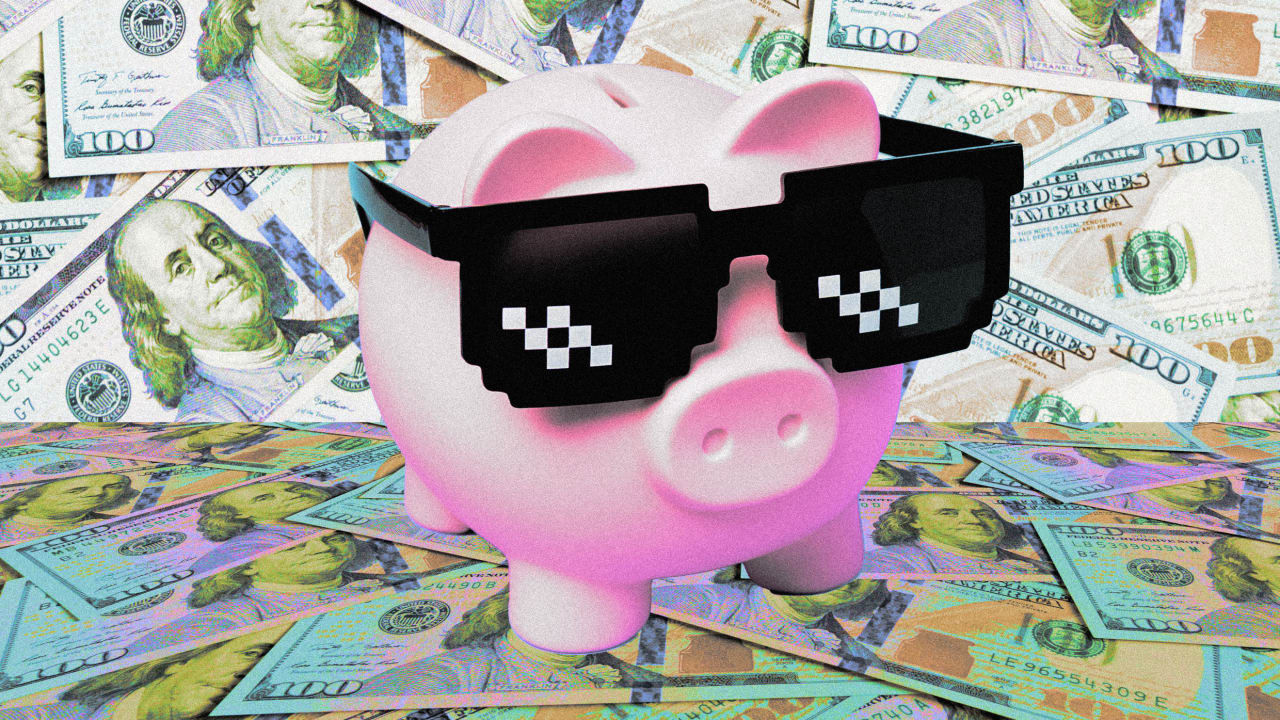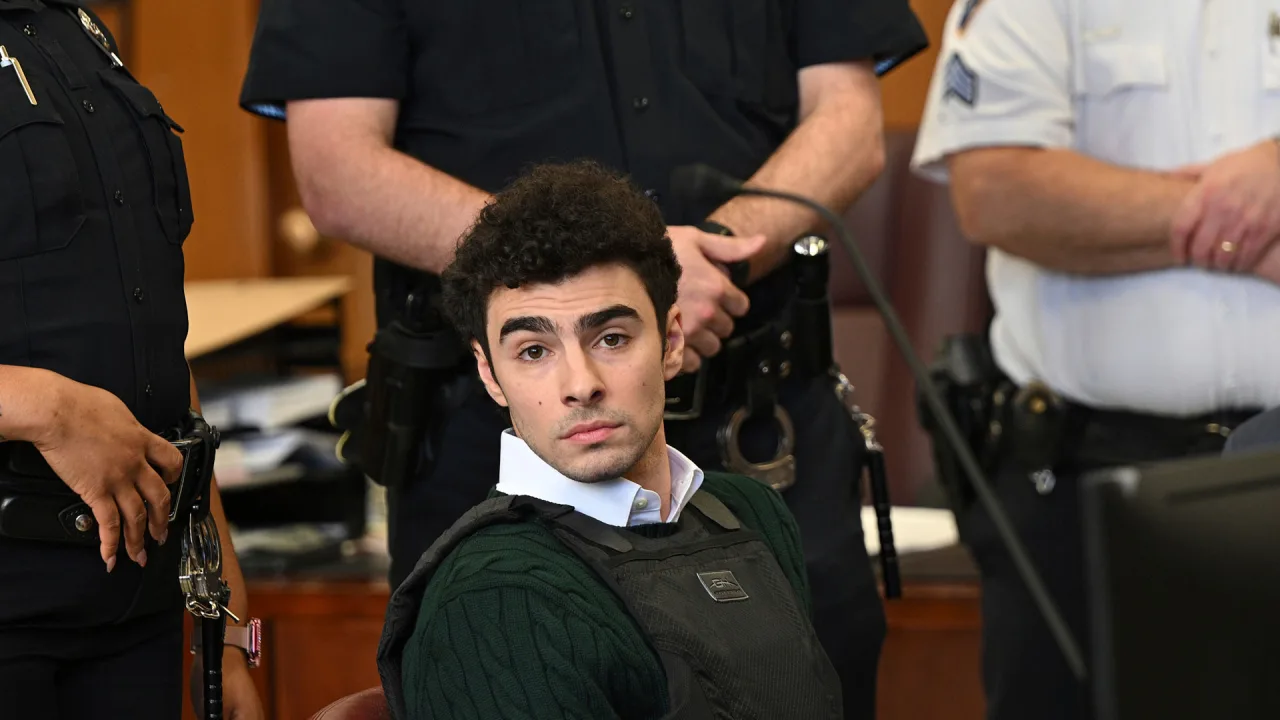Dub wants to make stock market stars out of everyday investors
Whether it’s picking out a new brunch spot or deciding which pants to buy next, the influencer economy has cemented itself as a powerhouse in consumer decision-making—and copy-trading app Dub believes the stock market is next. Founded in 2021 out of CEO Steven Wang’s Harvard dorm room, the retail investment platform launched from stealth in February last year and has since amassed more than 1 million users. “Especially during times of volatility like this, people need more help than ever to navigate how to invest,” Wang says. “People are seeing us as a trusted source to be able to find experts who guide them on how to invest and let them sort of do the hard work for you.” After witnessing the impact of social media and investing through the infamous GameStop short squeeze in 2021, the 23-year-old founder set out to harness social media influence to benefit young investors. Despite ongoing economic uncertainty, more than 62% of Americans own stock, and younger generations are showing growing interest in entering the market. Gen Zers, for example, are beginning to invest at age 19—earlier than previous generations—and are often turning to social media for financial advice. While Dub first gained traction by allowing users to copy high-profile investors like longtime California Congresswoman Nancy Pelosi and billionaire Warren Buffett, now the app also taps into the power of everyday creators, letting users copy and be copied by one another. (Politicians’ portfolios are not managed by the politicians themselves, but rather Dub advisers, and may take up to 45 days to update depending on their financial filing.) Functioning as a marketplace ecosystem, the app allows users to browse in-app creators, with visible returns displayed on-screen, offering a transparent and accessible experience for young investors. “It’s kind of like an eBay or an Amazon,” Wang says. “You can shop through all the different people who might interest or align with your investing style, your investing thesis. Or you might be enthused by their track record and their great performance.” Headquartered in New York City, Dub has raised $47 million in funding, including a $30 million Series A round in early May, and is growing quickly. Notable investors include Nathan Rodland of Robinhood, Dara Khosrowshahi of Uber, and major firms such as Notable Capital and Tusk Venture Partners. Monetizing influence In January of this year, the app launched its Top Creator Program through its registered investment adviser, allowing a select group of vetted, handpicked top performers to receive royalties. One of the top creators is 28-year-old Kian Saidi, who started investing 10 years ago and has held various roles in the investment world. Before joining Dub—where he runs the $UNUSUAL portfolio with $2.6 million under management and 1,500 people copy-trading him—he led the Owls Capital Discord group, sharing market insights with 2,800-plus users. His X account has also gained more than 60,000 followers for his financial commentary. Through Dub, Saidi’s followers can ensure his returns are accurate and updated in real time, reflecting trades brokered directly within the app, while he continues to grow his audience. “It was a win-win,” Saidi tells Fast Company. In addition to monetization, he sees the creator program as a platform for young investors to showcase their skills. “Let’s say you’re interested in working for Goldman and JP Morgan,” he says. “You can showcase your performance on this app because you are only buying long stock . . . so it’s very similar to being on the floor.” Learning while trading Wang gained his trading insights long before his Harvard days (he says he got into investing in the second grade). But most young investors begin much later. Daniel Tang, a 26-year-old early Dub user who works in the commodities trading industry in Houston, initially joined the app to diversify his investments but quickly discovered an unexpected benefit. “I have a lot of insight on the commodities market, but I lack the ability to understand the equities market as much, so there are people I’m competing against where their full-time jobs is to look into the equity side of things,” Tang says. Tang especially likes that the app requires creators to explain their rebalancing decisions, noting that such transparency helps him learn from the experts he subscribes to. “It gives me insight on the equities market that I could use even in my personal job,” he says. The app’s educational focus is designed to encourage beginners to start investing with more confidence. “Most people never learn how to invest, and it’s one of the most powerful things that one can do,” Wang says. “The stock market is the compounding engine of capitalism, and is truly the most powerful way to make money in modern society.”

Whether it’s picking out a new brunch spot or deciding which pants to buy next, the influencer economy has cemented itself as a powerhouse in consumer decision-making—and copy-trading app Dub believes the stock market is next.
Founded in 2021 out of CEO Steven Wang’s Harvard dorm room, the retail investment platform launched from stealth in February last year and has since amassed more than 1 million users.
“Especially during times of volatility like this, people need more help than ever to navigate how to invest,” Wang says. “People are seeing us as a trusted source to be able to find experts who guide them on how to invest and let them sort of do the hard work for you.”
After witnessing the impact of social media and investing through the infamous GameStop short squeeze in 2021, the 23-year-old founder set out to harness social media influence to benefit young investors.
Despite ongoing economic uncertainty, more than 62% of Americans own stock, and younger generations are showing growing interest in entering the market. Gen Zers, for example, are beginning to invest at age 19—earlier than previous generations—and are often turning to social media for financial advice.
While Dub first gained traction by allowing users to copy high-profile investors like longtime California Congresswoman Nancy Pelosi and billionaire Warren Buffett, now the app also taps into the power of everyday creators, letting users copy and be copied by one another. (Politicians’ portfolios are not managed by the politicians themselves, but rather Dub advisers, and may take up to 45 days to update depending on their financial filing.)
Functioning as a marketplace ecosystem, the app allows users to browse in-app creators, with visible returns displayed on-screen, offering a transparent and accessible experience for young investors.
“It’s kind of like an eBay or an Amazon,” Wang says. “You can shop through all the different people who might interest or align with your investing style, your investing thesis. Or you might be enthused by their track record and their great performance.”
Headquartered in New York City, Dub has raised $47 million in funding, including a $30 million Series A round in early May, and is growing quickly. Notable investors include Nathan Rodland of Robinhood, Dara Khosrowshahi of Uber, and major firms such as Notable Capital and Tusk Venture Partners.
Monetizing influence
In January of this year, the app launched its Top Creator Program through its registered investment adviser, allowing a select group of vetted, handpicked top performers to receive royalties.
One of the top creators is 28-year-old Kian Saidi, who started investing 10 years ago and has held various roles in the investment world. Before joining Dub—where he runs the $UNUSUAL portfolio with $2.6 million under management and 1,500 people copy-trading him—he led the Owls Capital Discord group, sharing market insights with 2,800-plus users. His X account has also gained more than 60,000 followers for his financial commentary.
Through Dub, Saidi’s followers can ensure his returns are accurate and updated in real time, reflecting trades brokered directly within the app, while he continues to grow his audience.
“It was a win-win,” Saidi tells Fast Company.
In addition to monetization, he sees the creator program as a platform for young investors to showcase their skills. “Let’s say you’re interested in working for Goldman and JP Morgan,” he says. “You can showcase your performance on this app because you are only buying long stock . . . so it’s very similar to being on the floor.”
Learning while trading
Wang gained his trading insights long before his Harvard days (he says he got into investing in the second grade). But most young investors begin much later.
Daniel Tang, a 26-year-old early Dub user who works in the commodities trading industry in Houston, initially joined the app to diversify his investments but quickly discovered an unexpected benefit.
“I have a lot of insight on the commodities market, but I lack the ability to understand the equities market as much, so there are people I’m competing against where their full-time jobs is to look into the equity side of things,” Tang says.
Tang especially likes that the app requires creators to explain their rebalancing decisions, noting that such transparency helps him learn from the experts he subscribes to.
“It gives me insight on the equities market that I could use even in my personal job,” he says.
The app’s educational focus is designed to encourage beginners to start investing with more confidence.
“Most people never learn how to invest, and it’s one of the most powerful things that one can do,” Wang says. “The stock market is the compounding engine of capitalism, and is truly the most powerful way to make money in modern society.”



















































































































































